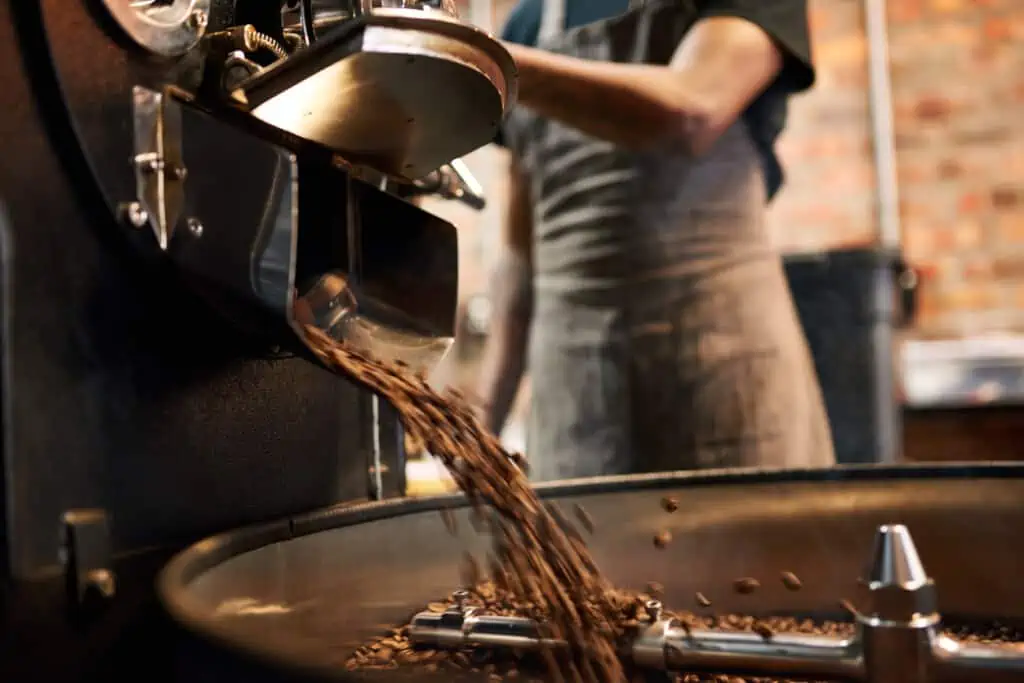
Our monthly reports are a bit like a coffee grab bag — we never know what kinds of submissions we’re going to receive, but we always get some surprises that steer the month’s given theme in specific directions. And that’s really the point with our reports: to pose a question and see what potential answers surface. The end result is never comprehensive, but it’s always engaging and intriguing.
This month, we were curious about roasters whose coffees we’d never cupped before, of which there are many. So, it was exciting to see what submissions landed — coffees from veteran roasters to newbies, spanning the U.S., Canada and Taiwan — and to introduce the work of roasters entirely new to Coffee Review to our readers.
We review nine coffees here, ranging in score from 92-94, and the themes that emerged in our cupping include intentionality, transparency, mission, and, of course, quality. Another clear theme is that all nine feature coffees from classic origins. Four are from Kenya, three from Ethiopia, one from Colombia, and one from Costa Rica. Of these, all but one was processed by traditional methods, washed, honey or natural, without the additional processing experiments that distinguish a growing percentage of coffees we review: anaerobic (fermented in an oxygen-free environment); fermented with the addition of wine yeasts or lactic acid bacteria; or processed with various fruits added to the fermentation tank.
We have mused internally about why these roasters new to our publication submitted more traditional coffees than the broader range of styles we routinely evaluate for review. Is it because the submitters were thinking conservatively, i.e., wanted to send in “classic” coffees that have a long history of performing well on our cupping table? Or is it because these roasters themselves and their customers have an affinity for the classic cup profiles? We’re not really sure, but what rose to the top this month were eight fairly traditional coffees in terms of origin and processing, along with one experimentally processed coffee fermented with passionfruit.
We interviewed the nine roasters to learn more about their coffees and their company’s philosophies.
Women Who Mean Business
All of the roasters whose coffees we review this month spoke of their companies as mission-driven, whether their core values line up around empowering farmers, transparency in the supply chain, or principles of customer service. But we were especially gratified to find that several companies are women-owned and/or feature women in leadership roles. Both Swelter and Sightseer are women-owned businesses that take their raison d’etre even further: They exclusively source coffees from of women producers.
Stephanie Welter-Krause’s Swelter Coffee (get it?) was founded in El Cerrito, California in 2020 with a mission to support women coffee producers and build a sustainable business. She is also committed to reducing landfill, so she offers a Zero-Waste Coffee Club, which allows customers to receive monthly deliveries that they can transfer to an Airscape vacuum-sealed container (or another container they already own), so subscribers can have a fresh supply of coffee at the ready with no packaging waste.
Sightseer Coffee is a queer-owned company that also works exclusively with women-farmed coffees. Founded in Austin, Texas in 2021 by Sara Gibson and Kimberly Zash, Sightseer was launched with the intention of making the coffee industry more representational. Gibson says, “While women typically make up about 70% of the manual labor force on coffee farms, they are often shut out of decision-making and ownership. By sourcing exclusively from women, we’re hoping to do our part to start to change that. When women have more financial power, more resources tend to be invested back into social and environmental initiatives, leading to better outcomes for families and communities.”
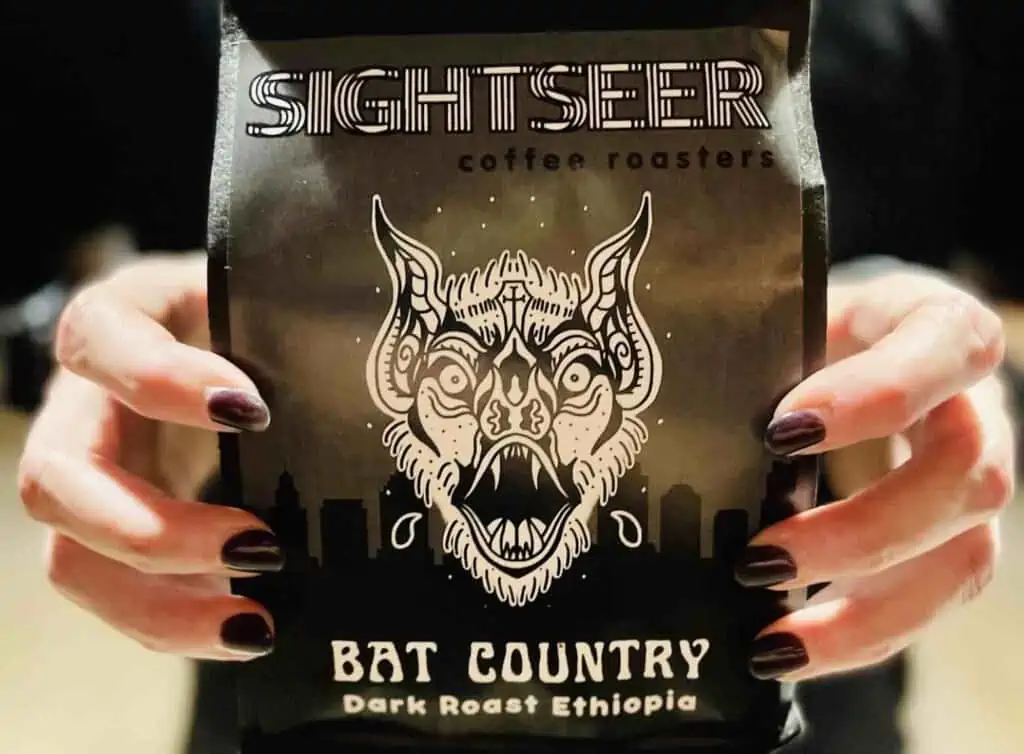
Sightseer Coffee is a queer-, women-owned business based in Austin, Texas. Courtesy of Sightseer.
Amazingly, both roasters submitted the same coffee, but with very different roast profiles, allowing us to taste the range of this green. It is a washed Ethiopia from Yirgacheffe produced by sisters Hirut (Beti) and Mahder Birhanu, processed at their washing station, Dumerso, and imported by Catalyst Trade.
Swelter’s version, Birhanu Sisters’ Ethiopia (93), shows notes of cocoa nib, bergamot, red plum, jasmine and cedar. Sightseer’s profile, called Bat Country Dark Roast Ethiopia and rated at 92, isn’t a dark roast in the Starbucks sense of the word, but more a medium-dark cup that emphasizes crisp chocolate, honeysuckle, dried persimmon, almond nougat and fresh-cut oak.
Two Veterans in the Field
While most of the submissions we received for this month’s report were from newer roasters, two came from established businesses. Nevertheless, mission remains the narrative throughline.
David Blanchard, founder of Richmond, Virginia-based Blanchard’s Coffee, says, “We believe coffee should be accessible and approachable for anyone who wants to enjoy a great cup, so we work hard to remove the pretense from the experience and focus on sourcing great, traceable, sustainable coffees, thoughtfully roasting them and meeting our customers where they are.” We cupped Blanchard’s classic Kenya Karindundu AB (93) and were pulled in by its complex, richly bittersweet structure with notes of cocoa nib, red berry and savory florals.
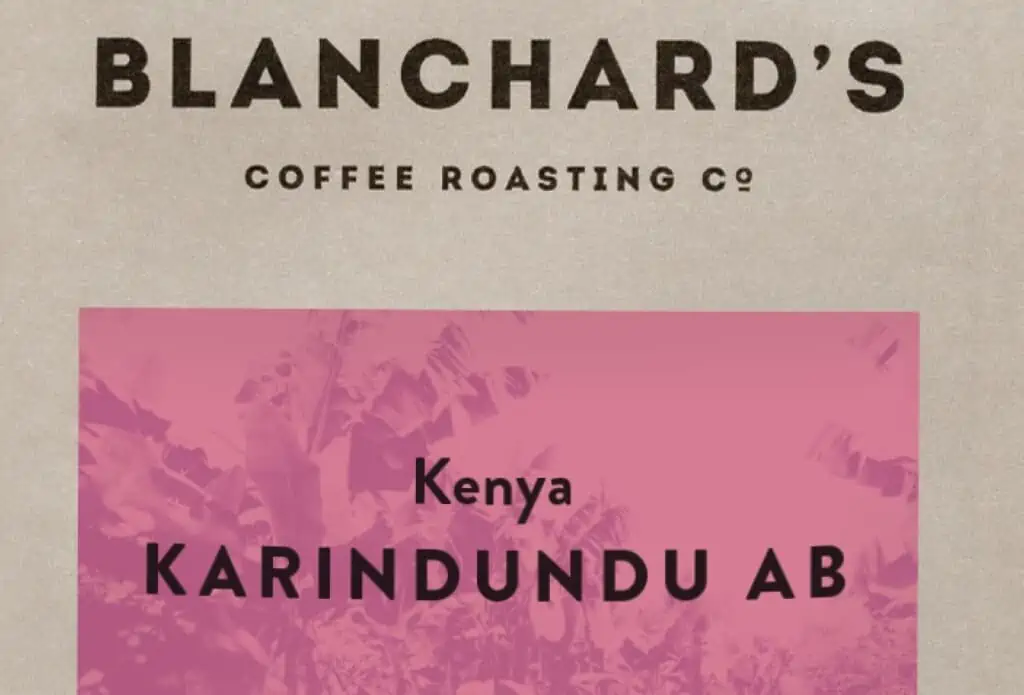
Richmond, Virginia-based Blanchard’s Coffee offers a Kenya Karindundu that we rated at 93. Courtesy of Blanchard’s.
Burlington, Vermont’s Vivid Coffee, which started as a wholesale operation before adding several cafés, prefers to source coffees from small farms and farming communities. Vivid’s Ian Bailey says, “We prioritize excellence and quality alongside equitable purchasing practices. This means we partner with the same coffee producers year after year; we are a predictable source of income for producers. We often work directly with producers and exporters to ensure fair prices are being paid to farmers. We’re grateful to partner with farmers who are committed to excellent production and processing standards, quite a few of whom have placed in their countries’ Cup of Excellence competitions.”

Vivid Coffee’s cafe in Burlington, Vermont. Courtesy of Vivid.
Vivid’s Kenya Gichithaini AA (92) is a deep, savory-leaning cup with leading notes of black tea, dark chocolate, golden raisin, sandalwood and tiger lily.
Two Emerging Roasters from Taiwan
More than a quarter of all coffees we receive for standalone review each year are roasted in Taiwan, a country with a well-developed coffee and café culture that seems, from our vantage point, to be cutting-edge in terms of sourcing practices that encourage innovation. Many of the experimentally processed coffees we review come to us first by way of Taiwanese roasters, suggesting that this region may be something of a bellwether for trends in the industry.
Rest Coffee Roasters, based in New Taipei City, sent a lovely Costa Rica Canet Raisin Honey (93), a sweetly herbaceous, floral honey-processed cup with notes of gooseberry, sage, magnolia, baking chocolate and pine nut.
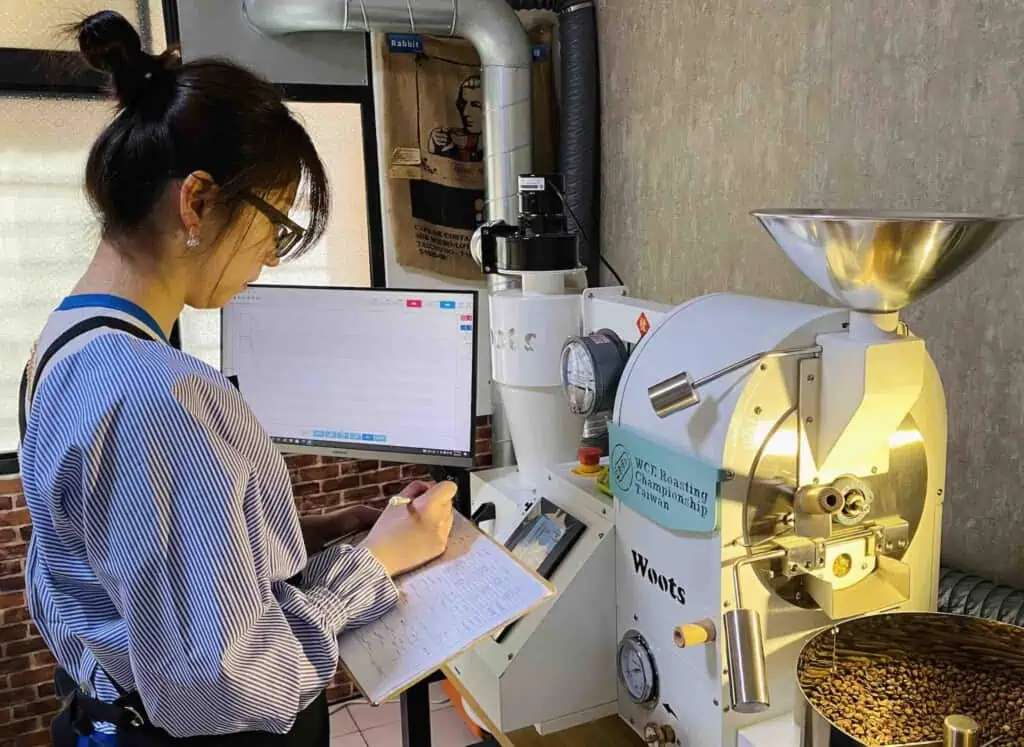
Wang Tzu Chi of Rest Coffee Roasters in Taiwan. Courtesy of Rest.
Co-owner Wang Tzu Chi, who founded the company with her husband, Hare, says, “With ‘rest’ as the starting point of the brand, we hope that modern people can stop for a while in the midst of daily stress and brew a cup of fresh coffee from various countries, feel it with their own heart, taste it with their own taste buds, and let their body and mind rest for a time.”
Located in Taichung’s Xitun District, AKA Coffee goes somewhat against the light-roast trend, preferring, as Tony Chuang says, “to roast coffee smoothly for transparent flavor, trying to soften the acidity of each coffee and balance it with sweetness in the roast profile.” Chuang is partial to Kenyas for their wide range of aromatic and flavor expressions, and his Kenya AA (93) included in this month’s report is a case in point with its vibrant, balanced acidity, rich sweetness and satiny-smooth mouthfeel.
Three Newbies on a Mission
The genesis of Bassline Coffee’s passion lies outside the coffee industry — in music, where audio-video engineer Brad Katz found himself sidelined during the Covid lockdown. Katz had a personal interest in coffee roasting, so he got creative and decided to turn his hobby into a business in 2021. Bassline’s tagline is, “a roast for every rhythm.”
Lead roaster Tim Carter says, “We currently offer a wide variety of coffees, both in terms of region and roast level. Our Ethiopia Bekele Heto Natural (93) has been one of our favorite offerings, so far. We love a nice natural with a clean fruit and a lot of funk! This bean has so much to offer that we feel it shines as a light roast. We know Bassline sounds like we focus on the lows, but we also highlight those trebles!” We rated this coffee, imported by Royal, at 93, engaged by its berry-driven, sweet-tart cup.
ILSE Coffee Roasters, in North Canaan, Connecticut, offers a Kenya Ichuga AA (93) with classic notes of black currant, narcissus, toffee, cedar and pink grapefruit zest. Owner and co-founder Rebecca Grossman says, “We describe ourselves as an ingredient-driven company, as we feel that starting with the best raw product is one of the most important things we can do. We enjoy roasting and serving coffees with a distinct sense of origin, as well as coffees that have strong flavor clarity and complexity. We work with a lot of the same producers yearly and very much value our relationships throughout the supply chain. Our goal is to work with the utmost intentionality throughout the entire sourcing, roasting and serving processes.”
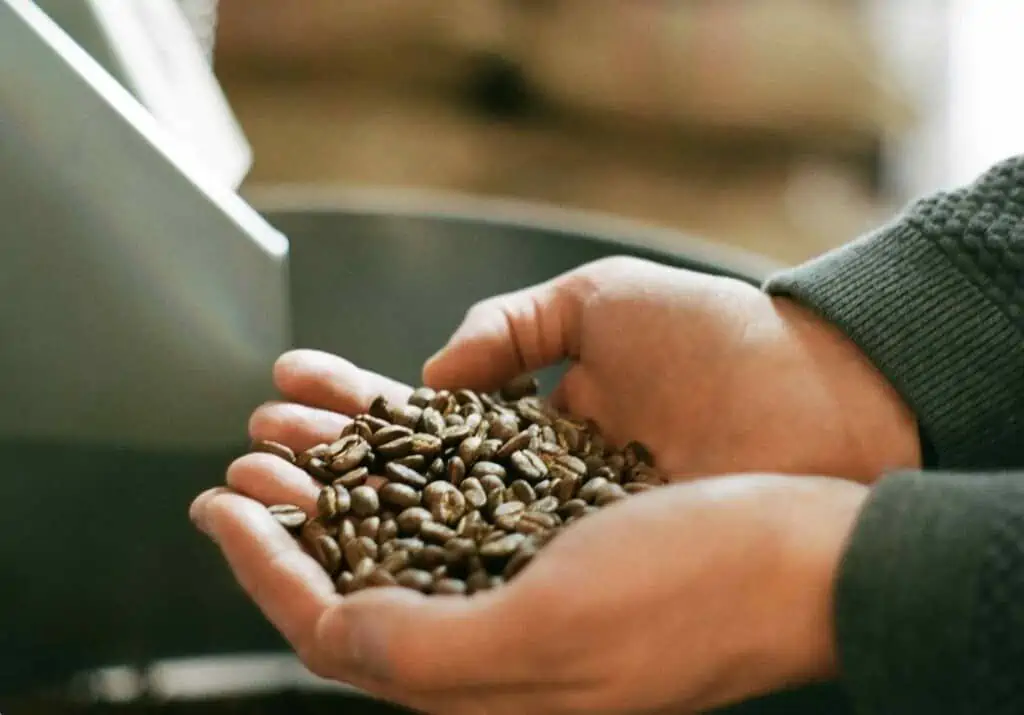
Examining a coffee just off the roast at ILSE Coffee. Courtesy of ILSE.
The Angry Roaster, based in Toronto, Canada, sent a Colombia Jardines del Eden Pink Bourbon Wine Yeast Honey, which, at 94, represents the highest-scoring coffee we review here, as well as the list’s most experimental — passionfruit pulp was added to the tank during fermentation. And this sweet-tart fruit is distinctly present in the cup, casting the whole profile in a tropical direction.
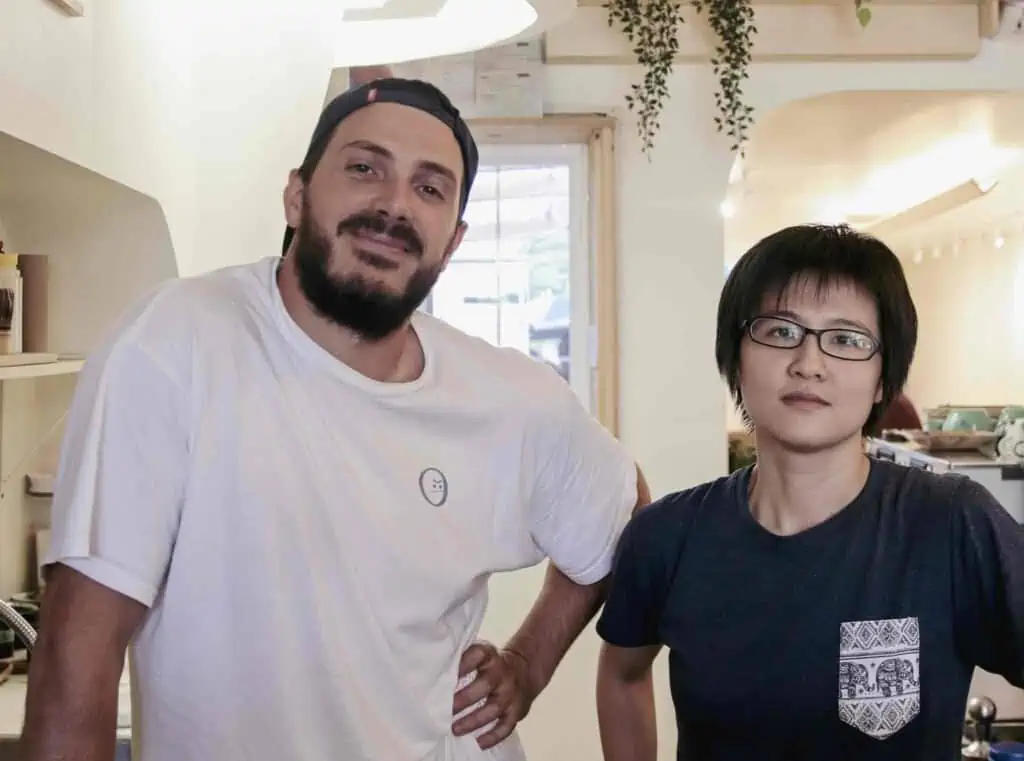
Co-owners Mal and Donna of Toronto’s The Angry Roaster. Courtesy of The Angry Roaster.
Owners Donna and Mal say, “Our mission has been to bridge the gap between the everyday coffee drinker and the specialty crowd while also bringing awareness to the issues facing the coffee growers of the world. Whether environmental or socio-political, with each coffee we try to bring a new story, and, when we can, contribute to it with some of our profits. And with that, we choose a variety of coffees in hopes it speaks to both ends of the spectrum, those new to specialty coffee and more refined palettes.”
And what’s with the company name? According to the Angry Roaster website, “Simply put, when you look at the state of the world today, If you’re not angry, you’re not awake.”
We appreciate the opportunity to discover these new-to-us roasters, and we look forward to seeing more coffees from them in the future.










